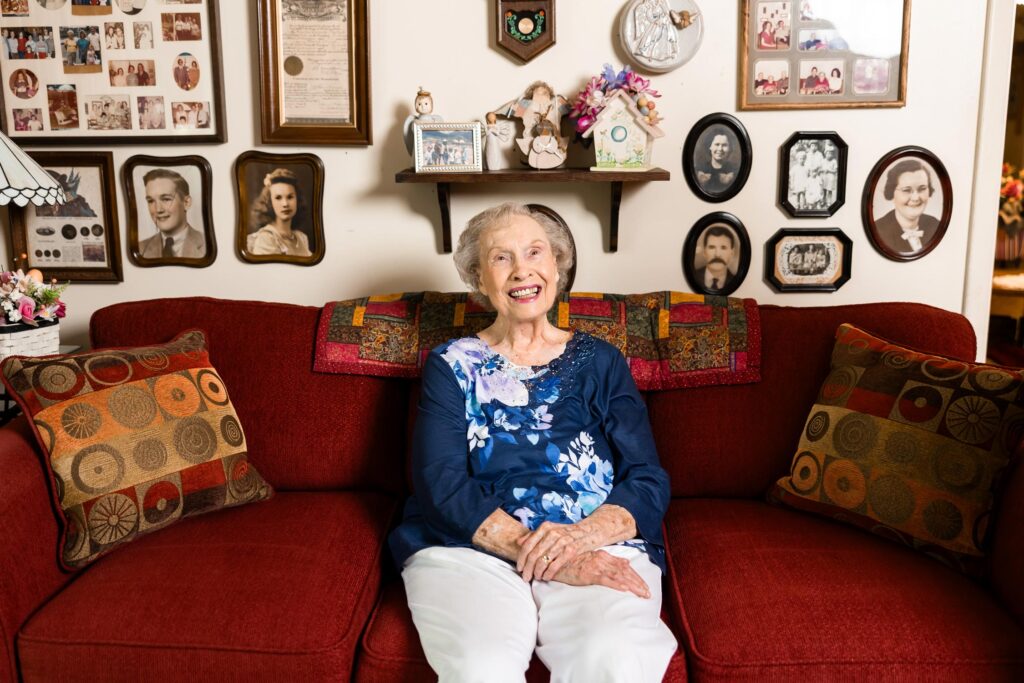By: Elise Hensley, Care Coordination Manager for Little Rock Soiree.
It doesn’t matter how many children you have cared for, because none of it really prepares you for what it’s like to care for an aging loved one. Although they may need help now, they once were young, vibrant individuals capable of driving, dressing, cooking and communicating.
It can be especially difficult if you are caring for an older parent. There was a time when they dressed you, fed you and literally carried you from one place to another. Now they’re having to take direction from their own child.
As you move through this journey, remind yourself that this is new for you and for them, but thankfully there are those who have come before you. So, we compiled a list of tips to help you care for your aging loved one and, most importantly, yourself.
1. Find your internal support system.
If life’s challenges have taught us anything, it’s that we all need people who can:
- provide an ear and a shoulder on the hard days
- carry some of the load by helping cook, shop or assist with daily tasks
- relate to your experience and provide feedback
- connect you to others on the same journey
2. Find your external supports.
It’s not uncommon to find unanswered questions when you begin the caregiver journey. When gathering information and putting a plan together, caregivers often begin to think about their own health and financial status, as well as future plans.
- Legal: Get your legal needs in order, as well as the needs of your aging loved one to ensure there are fewer legal battles or issues. Make sure you have bank accounts, burial plots, cars, houses, land/property, etc. in place to protect assets.
- Medical: Go to doctor’s appointments. Studies show the negative effects of caregiving can be so great that the caregiver’s health can decline faster than the person they’re providing care for. If you’re caring for a loved one with a disease or illness, do your research to learn more about it. Ask questions about the disease process. Ask for spellings or definitions of unfamiliar terms or phrases. Take notes. Ask for resources.
- Counseling/Community Groups: Having people you can call on when you need a friend or spirits lifted is great, but it’s also good to reach out to professionals for help. Whether it’s a local counseling center or connecting with need-specific support groups, growing your community of those you can lean on is never a bad idea. This is especially true for an older person who has now found themselves in need of another. They, too, need someone to talk to who can be objective and understanding.
3. Make your time a priority.
You are important. If you are no longer able to care for your loved one because you didn’t care for yourself, they won’t have anyone.
- Take breaks often
- Sleep
- Hire help
- Allow others to help
- Set boundaries
- Give yourself grace
It’s completely normal to have guilt over leaving your loved one. Creating an internal support system allows you to identify people who are willing to help when you need a hand. Communicate your loved one’s needs the best you can. Know that some things may not be the exact way you do things, but that doesn’t mean it’s wrong. Have patience with yourself, your family and your aging loved one.
4. Focus on small victories and know when to give space.
Caregiving is hard. However, celebrating the small wins is important. Maybe they ate a piece of fruit when they have eaten little to nothing most days, or they have stopped being combative and are having a moment of lucidity to tell you stories of when they were young. What matters is taking a pause to add a good moment to your memories.
If your loved one can make their own decisions, let them, even if you don’t agree. If they don’t want to continue a treatment path, it could mean end-of-life care with hospice. While that is a hard choice to watch someone make, there are hospice organizations that cater to a level of care that is supportive to patients and their families. If your loved one cannot, consider what they would want at the end of their days and honor those choices as often as you’re able. If you are co-caregiving with other active members, talk to them about what your loved one would or would not want.
5. Call in reinforcements.
Call CareLink to discover the resources available to you at 501.372.5300 or toll-free at 800.482.6359. A nonprofit headquartered in North Little Rock since 1979, CareLink’s mission is to connect older people and their families with the resources they need to meet the opportunities and challenges of aging.





